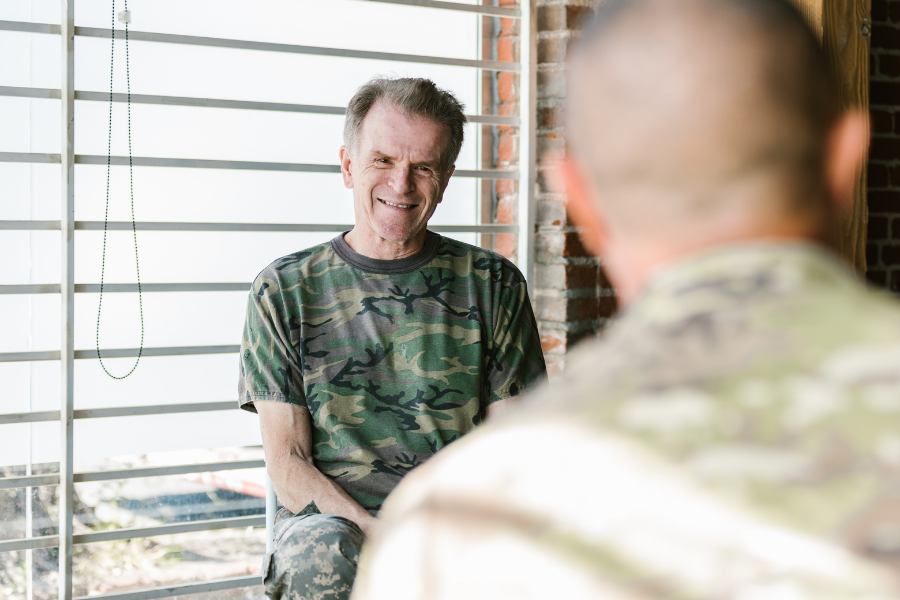
PARK RIDGE, Ill. (AANA)—Leaders of the American Association of Nurse Anesthesiology (AANA) congratulated Shereef Elnahal, MD, on his confirmation as Undersecretary for Health of the U.S. Department of Veterans Affairs (VA) and pledged the AANA’s continued support of the VA to ensure that the nation’s veterans receive timely, expert, quality care.
In an Aug. 1 letter to the undersecretary, AANA CEO Bill Bruce, MBA, CAE, highlighted the critical role Certified Registered Nurse Anesthetists (CRNAs) play in the VA healthcare system. Bruce requested a meeting with the new undersecretary to continue the AANA’s discussions with the agency on the need for permanently expanding full practice authority within the scope of CRNA licensing for providing anesthesia services to veterans in every state.
Standardizing the most efficient anesthesia care delivery models across the country will help ensure veterans receive consistently safe and high-quality care in all VHA facilities said Bruce. “VHA’s failure to utilize the safest and most efficient models of care is making our veterans wait too long for the critical care they have earned and deserve.”
“Nurse anesthetists are experienced and highly trained anesthesia professionals who provide high-quality patient care, demonstrated through evidence in decades of scientific research,” wrote Bruce. “More than 1,000 CRNAs are available in the VHA to provide every type of anesthesia care as well as chronic pain management services to veterans.”
“We appreciate the work the agency has already accomplished to protect our nation’s veterans, especially during the [COVID-19] public health emergency,” wrote Bruce. The public health emergency “has shown the urgent need for healthcare professionals to care for patients and also highlights the important role that CRNAs play in our healthcare system, especially when workforce barriers to practice are eliminated both at the state and federal levels,” he said.
In April 2020, the VA issued Directive 1899, which allowed healthcare professionals, including CRNAs, to practice and operate at the top of their education and state scope of practice. The following fall, the VA issued an interim final rule confirming that VA healthcare professionals, including CRNAs, may practice their profession consistent with the scope and requirements of their VA employment, notwithstanding any state license, registration, certification, or other requirements that unduly interfere with their practice. The rulemaking also confirms the VA’s authority to establish national standards of practice for healthcare professionals, which will standardize a healthcare professional’s practice in all VA medical facilities.
CRNAs are the primary providers of anesthesia to U.S. military personnel. The ability of CRNAs to provide high-quality care, even under the most difficult circumstances, has been recognized by every branch of the U.S. military. CRNAs have full practice authority in the Army, Navy, and Air Force and are the predominant provider of anesthesia on forward surgical teams and in combat support hospitals, where 90 percent of forward surgical teams are staffed by CRNAs.
“We appreciate the VA and VHA’s recognition of CRNAs’ skills and value to healthcare, including the work on Directive 1899 that emphasized the importance of allowing CRNAs to practice to the full extent of their training,” said Bruce.
“We strongly applaud the move by the VHA to remove barriers to care for our nation’s veterans, including encouraging facilities to implement full practice authority for CRNAs, to allow them to practice to the top of their scope and education. This move allowed the VHA greater flexibility to care for our veterans, in a more efficient and cost-effective way that increases access to care,” he wrote. “Our nation’s veterans deserve access to timely, cost-effective, and high-quality care within the VA health system. Removing unnecessary supervision and implementing permanent FPA for CRNAs will improve healthcare and practice excellence by increasing veterans’ access to a safe, high-quality healthcare workforce in the VA.”